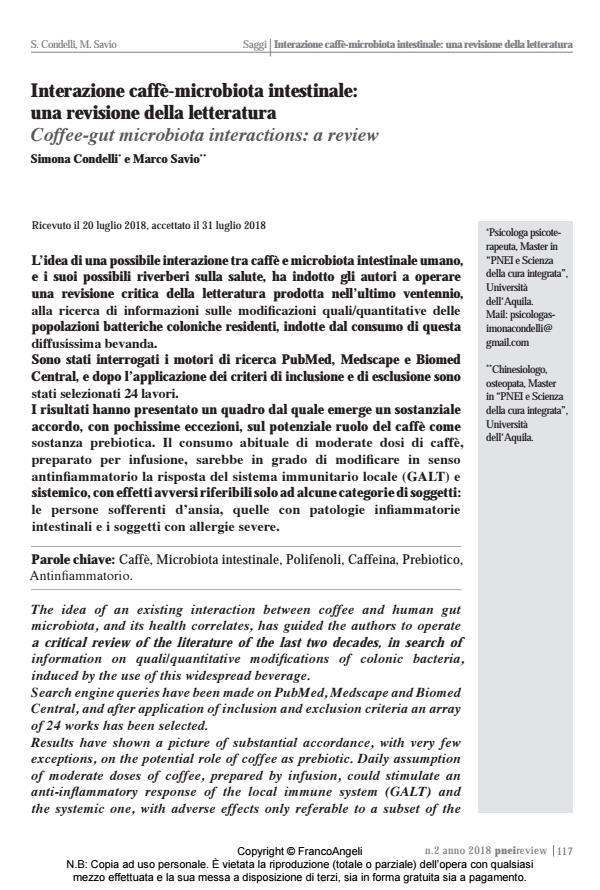Coffee-gut microbiota interactions: a review
Journal title PNEI REVIEW
Author/s Simona Condelli, Marco Savio
Publishing Year 2018 Issue 2018/2
Language Italian Pages 15 P. 117-131 File size 1178 KB
DOI 10.3280/PNEI2018-002009
DOI is like a bar code for intellectual property: to have more infomation
click here
Below, you can see the article first page
If you want to buy this article in PDF format, you can do it, following the instructions to buy download credits

FrancoAngeli is member of Publishers International Linking Association, Inc (PILA), a not-for-profit association which run the CrossRef service enabling links to and from online scholarly content.
The idea of an existing interaction between coffee and human gut microbiota, and its health correlates, has guided the authors to operate a critical review of the literature of the last two decades, in search of information on quali/quantitative modifi cations of colonic bacteria, induced by the use of this widespread beverage. Search engine queries have been made on PubMed, Medscape and Biomed Central, and after application of inclusion and exclusion criteria an array of 24 works has been selected. Results have shown a picture of substantial accordance, with very few exceptions, on the potential role of coffee as prebiotic. Daily assumption of moderate doses of coffee, prepared by infusion, could stimulate an anti-infl ammatory response of the local immune system (GALT) and the systemic one, with adverse effects only referable to a subset of the population: persons suffering from anxiety, those with infl ammatory gut diseases and severe allergic people.
Keywords: Coffee, Gut microbiota, Polyphenols, Caffeine, Prebiotic, Antiinflammatory.
Simona Condelli, Marco Savio, Interazione caffè-microbiota intestinale: una revisione della letteratura in "PNEI REVIEW" 2/2018, pp 117-131, DOI: 10.3280/PNEI2018-002009